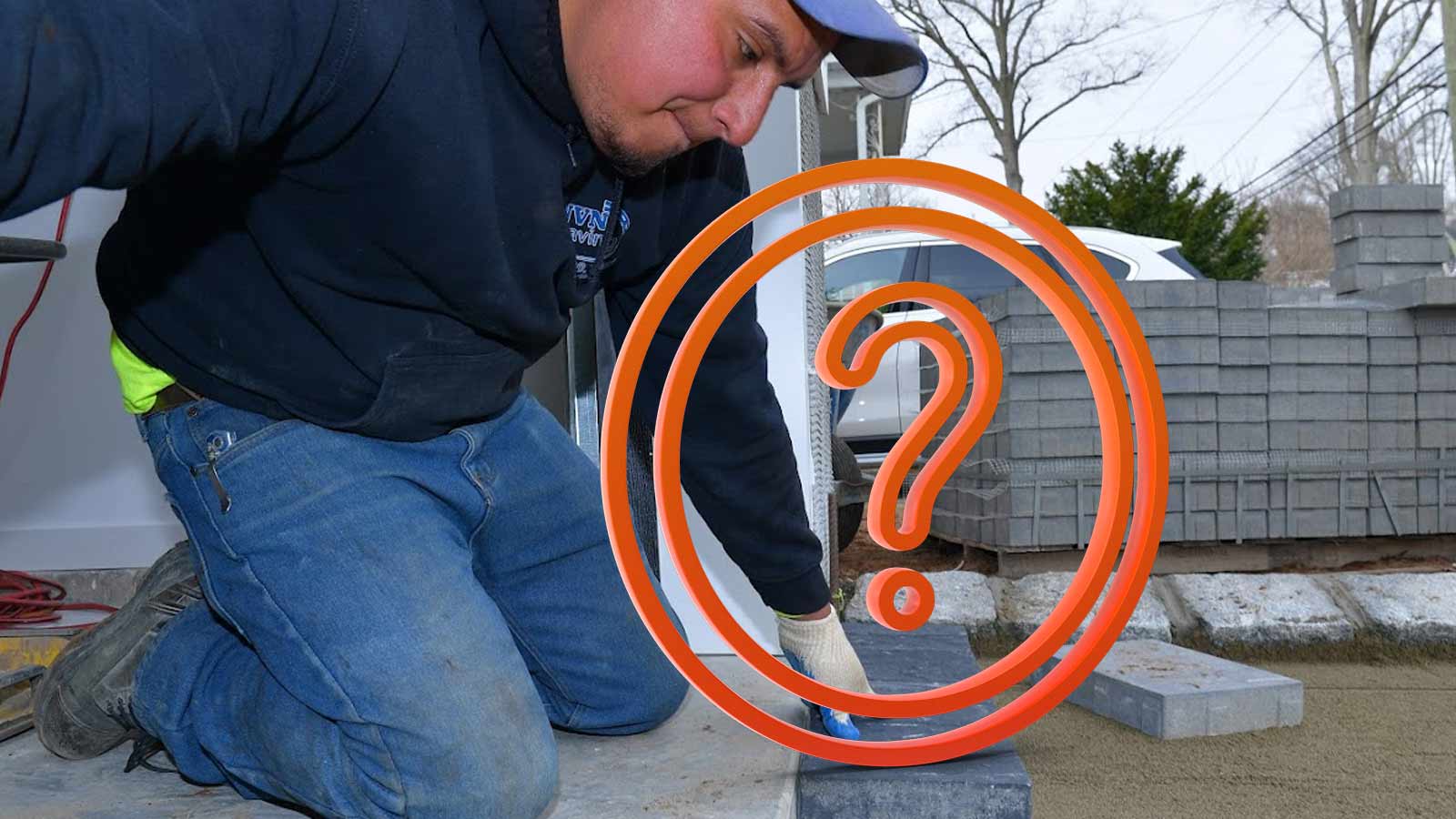Thinking about Brick Paving for the New Walkway in NJ?
There are a variety of benefits to using pavers. These include aesthetic appeal, durability, and strength. It is essential to know all the facts before you make a decision. That way, you have the correct information to make the process easier.
Why Should I Consider Pavers?
At NJN Paving, we think there are countless reasons to consider pavers. These include:
- You can use pavers regardless of the climate. Plus, once installed, you can walk on them immediately.
- With pavers, you’ve got easy access to any underground utilities. These include your electrical lines and sprinkler systems. If you need to remove the pavers, they can be reinstalled quickly and efficiently. No one even has to know they were removed and replaced.
- Concrete and asphalt pavements often have issues with cracking. However, there are joints between each paver, so this is never an issue.
- Pavers allow for excessive movement, so they are a more flexible system.
- Generally, pavers are virtually indestructible because their pavement system moves with the earth. As the ground swells and contracts with time, the pavers do, too. Therefore, there is no severe damage to the materials.
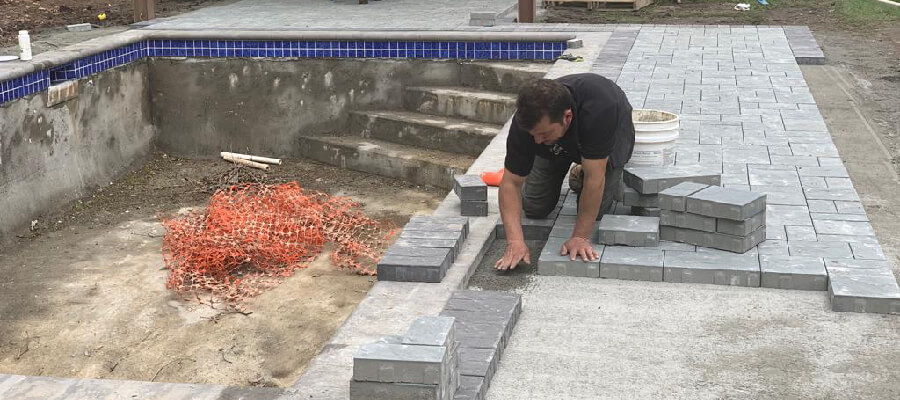
How Does Concrete Compare to Bricks?
Brick pavers are infinitely stronger than concrete throughout both of their lifespans. Of course, you have to ensure that they are installed correctly. Then, with the years of traffic, ice, snow, and rain, you know concrete is likely to crack with time. It can’t contract or expand as necessary. If you do have to repair the concrete, it is pretty noticeable. Pavers can ‘breathe’ during any extreme temperature changes. If one gets damaged, you can easily replace it with another that looks similar.
Don’t Brick Pavers Require a Lot of Maintenance?
No, the opposite is true. Of course, you must clean them periodically, and sealing them every year or so is a good idea. This helps them keep their color, finish, and any texture that has been added. Still, sealing and cleaning are personal preferences. You may not mind if they get fade from the sun and years of use.
Aren’t Brick Pavers Very Expensive?
Concrete is indeed the less expensive option. However, when you have the pavers installed correctly from us the first time, the investment can pay off in a few short years. Of course, pavers are much more aesthetically pleasing than concrete could ever be.
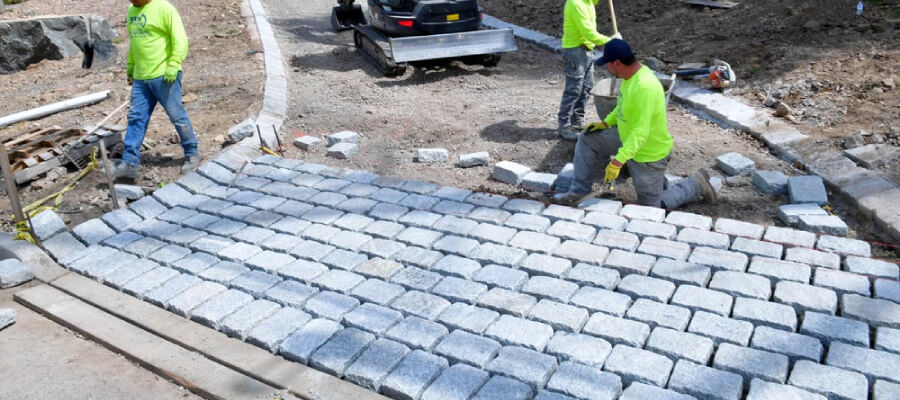
How Many Choices for Brick Pavers Are There?
You have endless options available to you. There are many styles of pavers from which to choose, but you can also find different patterns and textures to include. The sizing and colors can also be different based on your particular needs. In short, you can find anything to meet your lifestyle and tastes.
What’s the Estimated Cost of Brick Pavers?
It’s hard to tell you what cost you can expect to pay since there are so many choices on the market. The sizing, texture additions, and style can vary and change the price extensively. However, we do offer you a quick and free paver estimate. There is never any pressure to buy or obligation from the quote. Please call us today to have an NJN Paving representative visit your home to consult you on this critical paver project.
Can the Edges of My Interlocking Paver Stones Be Curved?
Yes! Many homeowners like the curved stone appearance instead of the boxy square. Because of our unique and fully trained installation crews, you can have pavers that fit into any design you like. This includes curves, steps, and walls!
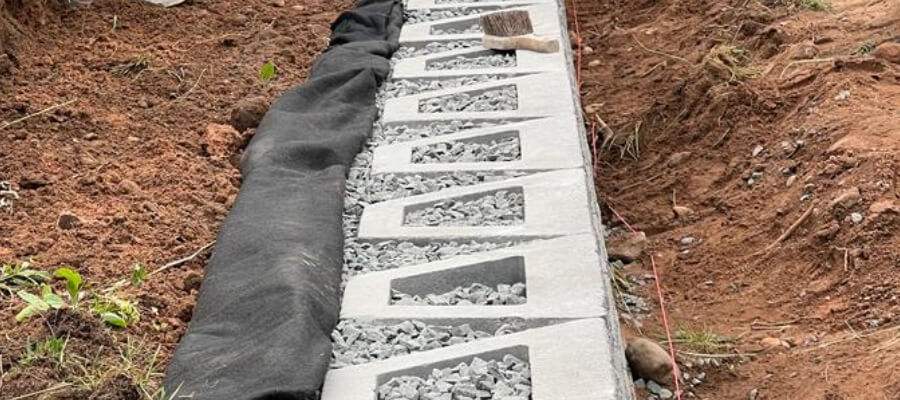
What’s the Material that Holds the Pavers Stable along the Edges?
We generally install a concrete edge beam around the deck, patio, or driveway edges. This protects from pavers from any lateral (side-to-side) movement. It is a normal situation, and you shouldn’t be concerned.
Is It Possible to Drive a Heavy Vehicle Over My Driveway Paving Stones?
Many worry about driving a motor home or an RV over their driveway pavers. This is entirely safe because our driving paving stones are designed to handle the heavy wear and tear of your motor home, RV, bus, or anything else. Of course, we ask that you tell us about any severe traffic conditions you expect from the paving stones. That way, our installation crew can advise you on the best products, and the installers know to make things heavy-duty.
Are There Going to Be Gaps Between the Stones? Is it Going to Be Level to Play/Skate/Walk/Ride-On?
Pavers are designed to be as level as can be. However, you can talk to us directly about your specific concerns. When you provide us with more information, we can help you choose between the many styles and options available.
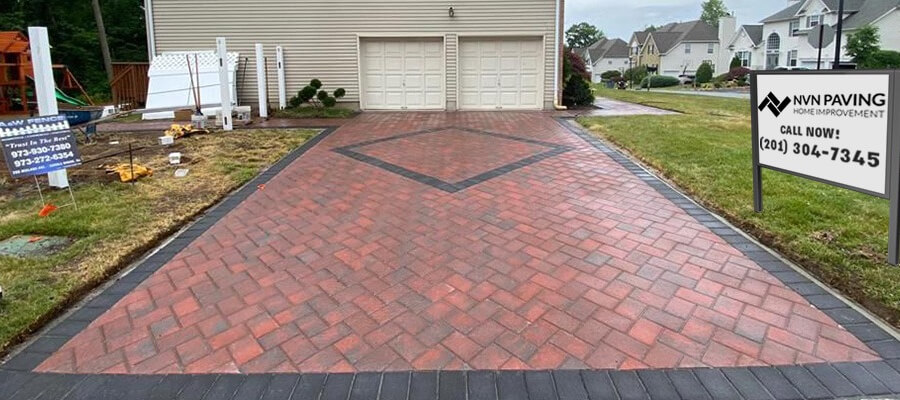
How Long Must I Wait to Walk or Drive on the Pavers Once They’re Installed?
There is absolutely no downtime required. You can start driving and walking on them once the installation crew leaves.
How Do These Pavers Stay Together?
We use grouting sand to add friction between each paver, which enhances stability. The pavement is kept together using concrete edges, which prevents the edge paver materials from shifting.
How Long Are the Pavers Going to Last?
In Europe, these pavers can last 50 years or longer. This is a better lifespan than other pavement options for regular residential use. Longevity begins by using high-quality materials and having a competent contractor install them correctly.
